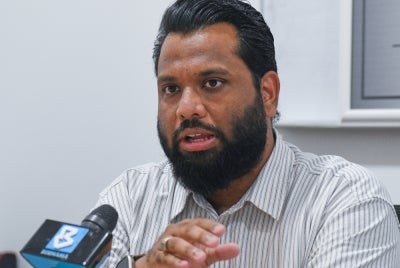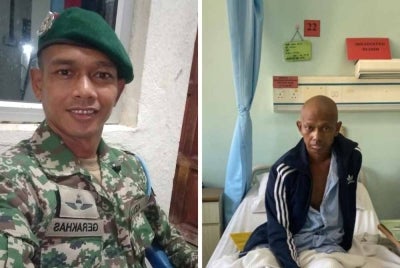Mental health awareness more important now than ever, says experts

SHAH ALAM - With the worrying rise of mental health issues among students, experts say that mental health awareness is more important now than ever, and resources for mental health assistance should be more accessible to the teenage youths.
The National Health and Morbidity Survey reported one in eight teenagers had suicidal thoughts. This number was reported to be around 6.9 percent in 2017 and currently has risen to 9.5 percent in 2022.
University Malaya Education and Psychology lecturer, Dr Amira Najiha Yahya stated that in Malaysia, there is a recognition of the increasing prevalence of mental health problems and issues but the exact extent and distribution of these issues may vary.
“The common mental health concerns in Malaysia normally include anxiety, depression, stress, and suicidal ideation.
“Recently all these issues are being addressed by many stakeholders through various programs, but the stigma surrounding mental health and limited access to quality mental health care is still our biggest challenge,” she said.
Amira said that when speaking of mental well-being among adolescents, they face unique challenges compared to other age groups. She noted that among the common setbacks faced by this generation are a lack of awareness, communication barriers, and social and self-stigma.
“When they experience symptoms related to mental health issues, they might not realize they need assistance,” she said.
She also added that communicating their issues to others may be a difficult endeavor for some, leading to frustration and isolation, especially among family members and peers.
Additionally, she said, excessive use of digital and social media also contributed to this issue as teens are more prone to be exposed to feelings of inadequacy, or less confidence, which are harder to be communicated with the adults in their life.
“Thus this creates a social and self-stigma among teens, leading them to discuss their problems less.
“Some individuals might even internalize negative stereotypes surrounding mental health, leading to a reluctance to seek assistance,” she said.
Amira pointed out that at school and university levels, various programs are created to educate students about mental well-being. She added that these initiatives enabled school-going teens to be exposed to mental health literacy, how to recognize signs of stress, and where to seek help if symptoms appear.
“Besides, many NGOs have organized community outreach programs to reach diverse age groups and communities while fostering discussions about mental health,” she said.
Managing Director and licensed counselor at MindaKami, Mimie Rahman said Mindakami, we often work with schools, NGOs, and parents to ensure the needs of these children are met.
“Teenagers aged 13 years old and above can seek our mental health services with any of our counselors or clinical psychologists.
“They can book the session through our website as easily as ABC, but consent from their guardians is still needed as it is required by the law,” she said.
MindaKami is an NGO that strives to create and spread awareness about mental health, neurodiversity, and disabilities. They aim to dismantle the stigma, amplify the voices of those who are often ignored, and empower individuals through advocacy and mental health services.
Mimie stated that MindaKami has worked with multiple schools to tackle mental health issues among students as school counselors sometimes are unable to deal with it due to limited capacity and resources.
“We also provide talks about mental health awareness to school children.
“Through these talks, we will explain this issue in a simpler term to help these kids understand how mental health affects anyone, regardless of their gender or age,” she said.
Mimie explained that since January this year, MindKami has engaged with 600 children aged 10 to 17, with talks about mental health awareness and providing group therapy in government and private schools.
She said that mental health support in school or in any center is just supplementary, there is still a need to ensure that the conversation is happening in the home as well.
“Although there are many efforts done, we cannot deny that it must be done continuously, sustainably, and more proactively in order to seriously address the issue of mental well-being,” she said.
Download Sinar Daily application.Click Here!















